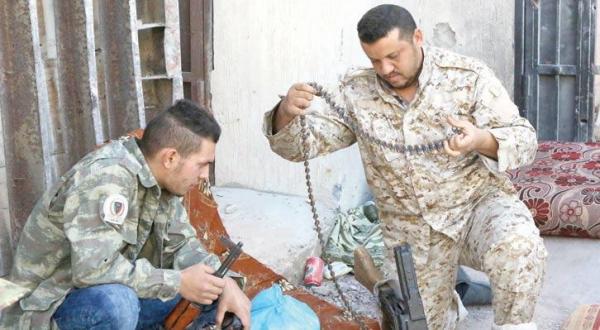After more than two years of war in Benghazi, Libya during which Libyans have been forced to stay in their homes and avoid going out into the street and sitting in cafes and public places, pictures are starting to appear of children going to school daily and popular markets reopening. These are indicators that normality is gradually returning to the city whose residents were previously accustomed to an atmosphere of fun and often stayed out late at night, especially during the hot summer.
The reason for this social transformation is that the Libyan national army is slowly beginning to achieve notable victories against the coalition made up of extremists and some former rebels. Its commander Khalifa Haftar has gained political influence particularly after the military has made progress.
Commenting on this new situation, a graduate of the Faculty of Law called Amal Al-Obeidi said “We started studying inside the university, but the conditions that we have experienced and the horrors of the war forced us to seek refuge in schools. I admit that we would not have been able to complete our studies and stand in front of the Faculty of Law’s campus except with the help of the army. Personally, I don’t think that the destruction will last forever, and matters will return to how they were. Our hope in our army is big”.
While the progress made by the Libyan national army has made parts of Benghazi relatively calmer, clashes and attacks have revealed the limit of the Libyan army’s control and this has raised some questions about its ambition to control rival factions in Libya.
